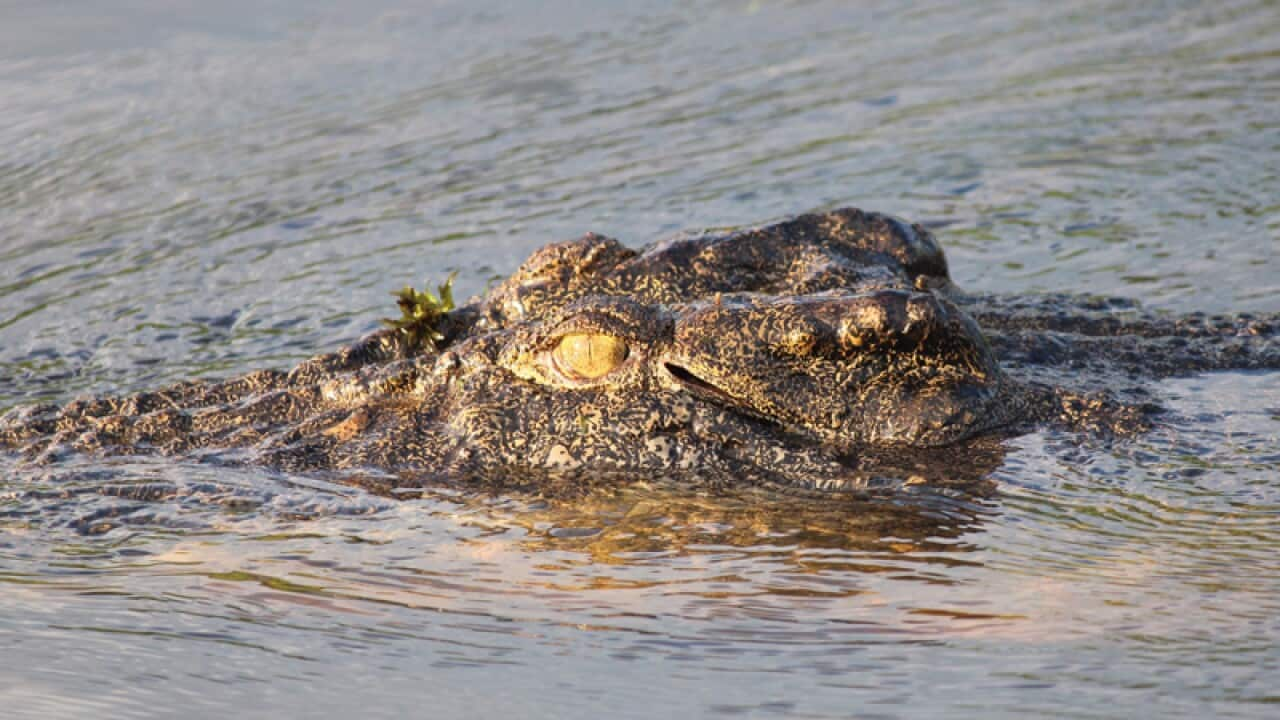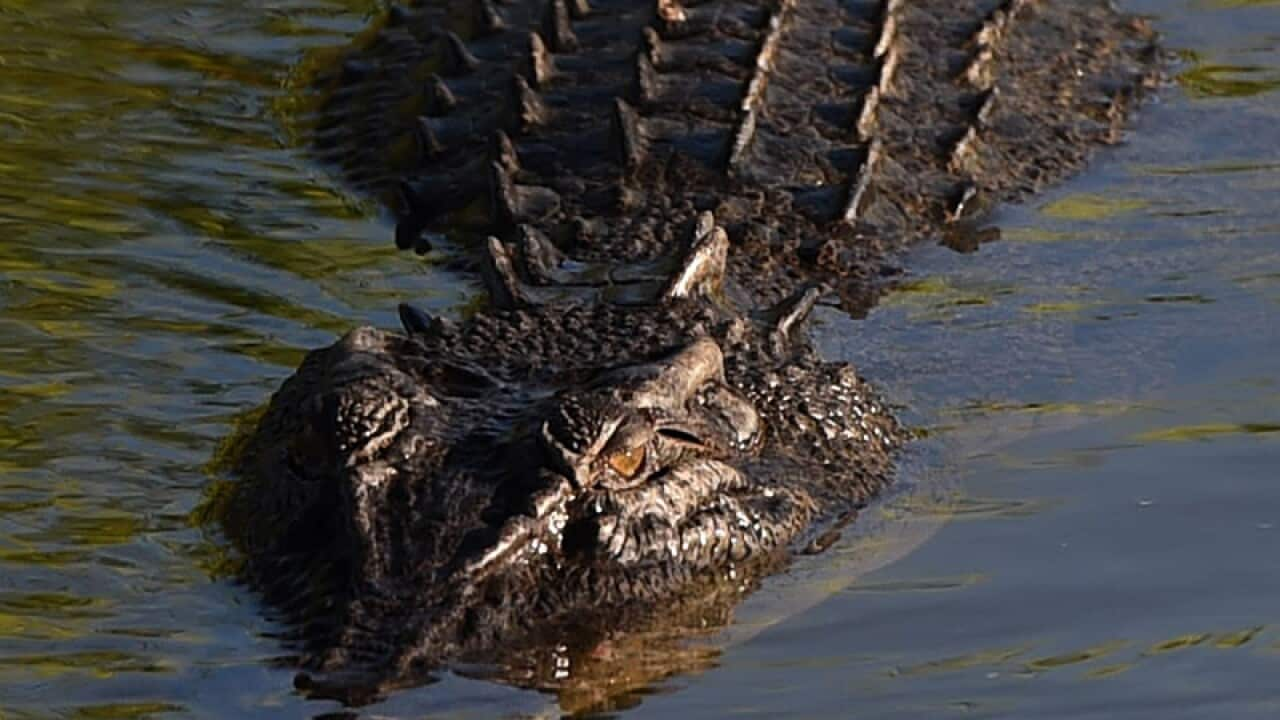Bob Katter’s proposed crocodile cull is making headlines across the country. The federal member for Kennedy says it’s imperative to manage croc populations in light of a number of incidents involving crocodiles in Queensland recently.
A 35-year-old spear fisherman was killed by a crocodile south of Cairns last month, while a teenager was mauled in the same area a few days later.
Wildlife authorities killed a four-metre crocodile in response to the fisherman's death.
Katter’s plan includes not just killing animals, but also collecting their eggs and tracking their movements. In addition, he is particularly calling for local Indigenous groups to run hunting safaris for tourists, as a way to generate income, while keeping crocodile populations in check.
Gangalidda Chairman, Murranddo Bulanyi Yanner, told NITV News, Katter’s “heart is in the right place, but we want it done as catch and release, not killing.”
Mr Yanner claims that Katter’s safari idea originally came from him. He says he told the politician about his vision for an Indigenous-led sustainable, ‘green safari’ that could become a world-first.
Crocodiles have “the most unbreakable, undefeatable spirit in the whole planet.”
Mr Yanner’s country runs from Burketown, includes Doomadgee, and goes all the way to the NT border. His people are famous croc hunters, and eat the animal regularly.
He says the safari “should only occur if Traditional Owners are at the wheel, controlling it and owning it.”
“Traditional Owners from the north are the best [people] to manage the whole thing. It’s not just about money. We have a relationship with the animal too,” he explained.
He says crocodiles at the moment are not present in great numbers, so a cull isn’t necessary – and he only condones hunting the animal if there are legitimate reasons.
“We need scientific research to establish the population in certain creeks and rivers, and only then you can come up with a suitable quota that could be hunted without affecting the population and keeping it sustainable,” he said.
“Safari hunting is ok for those crocs displaying rogue behavior towards stalking humans.”
Tradition, culture and science
Mr Yanner also explained that crocodiles are totemic and spiritual animals in some tribes, so not all Aboriginal and Torres Strait Islanders are able to kill them.
“This [practice] is an ancient form of land and animal population management,” as some tribes are able to kill and eat certain animals, while other can’t.
According to his culture, crocodiles have “the most unbreakable, undefeatable spirit in the whole planet.” For this reason, they should only be killed and eaten in their natural environment, rather than being in a prison, a zoo, which is more inhumane than hunting them.
“If you take a silverback gorilla from the mountains, or a lion or a tiger from the plains, and you put them in a cage from the wild, within a year their spirit is broken. Anyone who has seen animals in the wild looks at them in a zoo a year later and they know their spirit is broken.
“But a croc you can’t do that to. He may have never known freedom in his life, he may have been raised in captivity in an egg, yet he will still eat you the first chance he gets. You can shower him with love from the day he is born, and he’ll eat you the first chance he gets. You can brutalize him since the day he’s born, and he will eat you the first chance he gets. He has an unbreakable spirit,” he adds.
Mr Yanner says it’s preferable for hunters to come and pay big money to harpoon the animal, immobilize it, and let it go. This would enable tourists to experience going on a hunt, and would let rangers do their research. After the ordeal, the crocodile would become so afraid of humans, they wouldn’t dare come near people again.
“The hunter can get their picture; Traditional Owners and rangers can do their research on the croc, measure it and scientifically record it. No harm done.
“Immobilizing a powerful animal like a croc is difficult and dangerous. A hunter who has gone through that two to three-hour experience will find it exciting. There’s payment and the creature will be afraid of humans forever.”
In cases where there is a legitimate reason for culling, then “Traditional Owners could take them hunting, then they’ll eat the croc and re-use its other resources.”

Katter party MPs want the Queensland government to cull crocodiles or it will block the budget. (AAP) Source: AAP
Crocs in the crosshairs of politics
Queensland's Katter Australia Party MPs are threatening to block the upcoming state budget, unless the Palaszczuk government agrees to his idea of culling crocodiles.
Federal MP Bob Katter will be joined by state MPs Robbie Katter and Shane Knuth, as they hold meetings at Mareeba, Innisfail and Port Douglas.
Mt Isa MP Robbie Katter said he and fellow KAP MP Shane Knuth will block the budget, unless the government supports their legislation to establish crocodile safaris in far north Queensland, along with other management strategies.
"People think it’s unreasonable making threats on the budget, well how else do you get people to listen?" Mr Katter told reporters in Cairns.
"Our obligation is to go down there and vote for the interests of north Queensland, and if people are dying and you can't get them to listen, what are you supposed to do?"
Queensland's Labor government relies on the crossbench in the hung parliament, in particular the KAP, for support to pass supply bills.
With AAP



